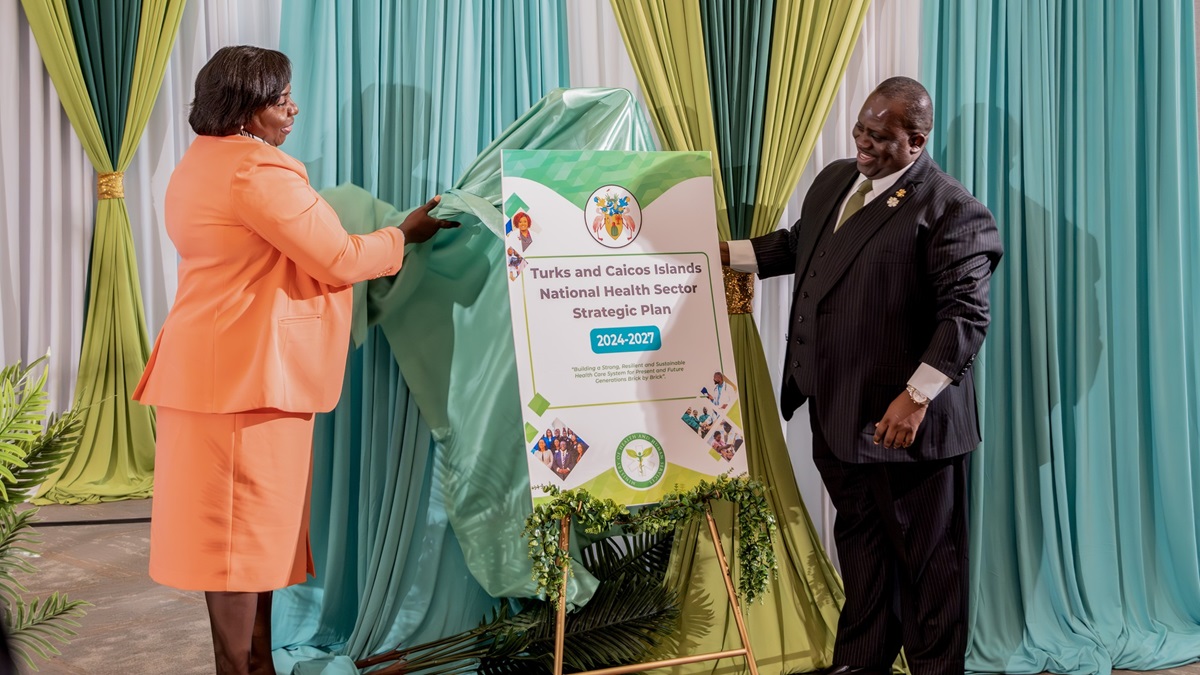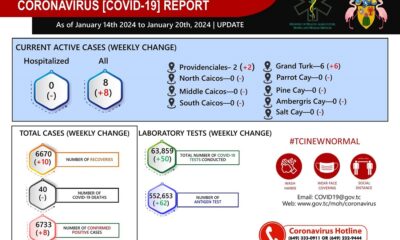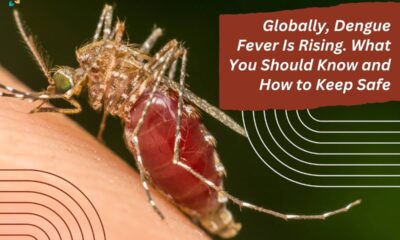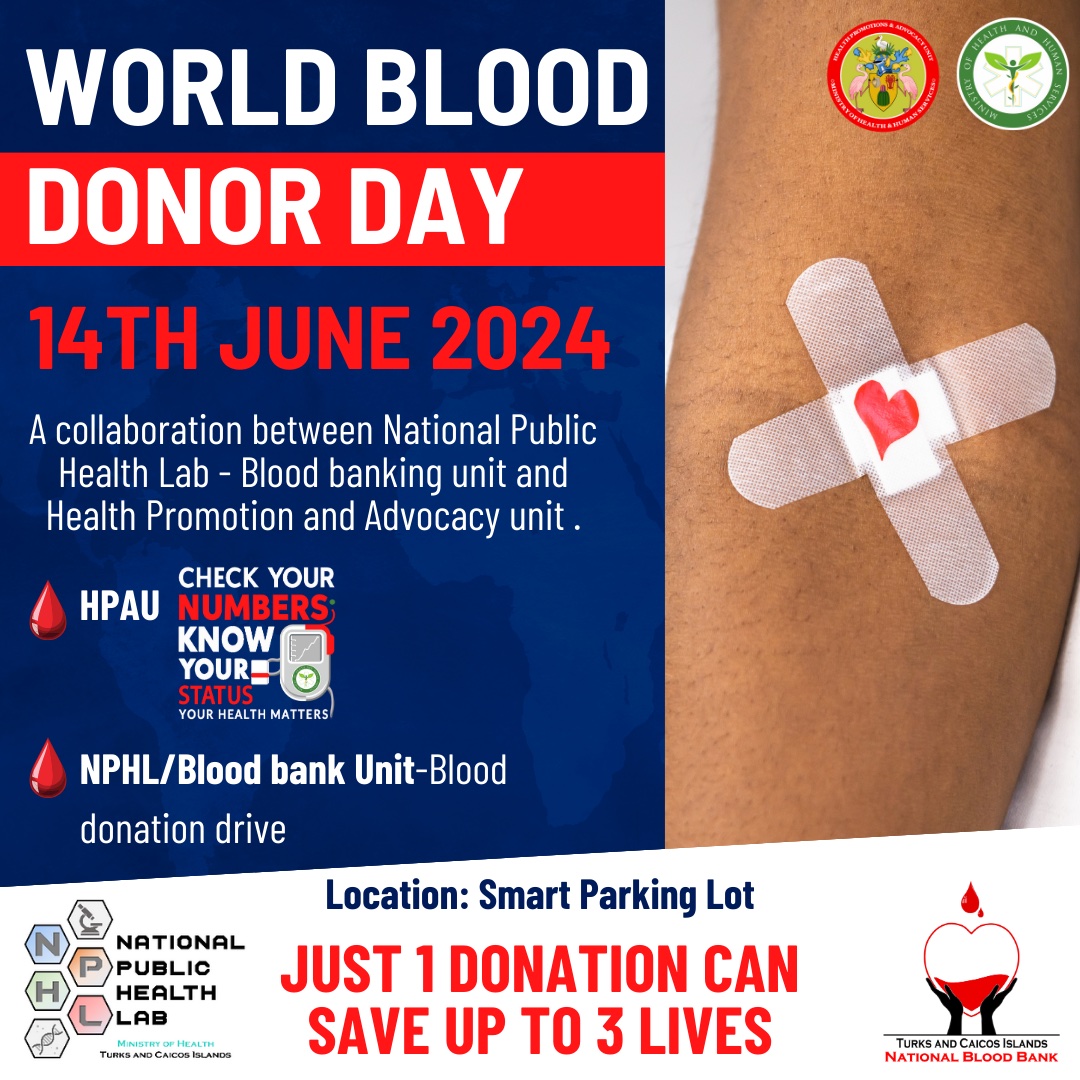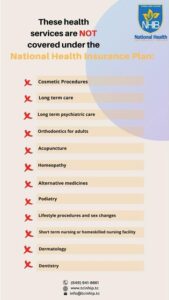#TurksandCaicos, May 31, 2024 – The Ministry of Health and Human Services is continuing to respond to the two confirmed cases of measles that were identified on 9th May 2024. Both cases have recovered and no further confirmed cases have been identified to date.
The Ministry of Health and Human Services, in response to these cases, has heightened its surveillance for fever and rash cases through the implementation of daily reporting through the various sentinel sites, which include clinics in both the public and private sector inclusive of the hospital to facilitate early identification of any suspected cases to ensure prompt interventions are implanted by the public health team inclusive of isolation, testing and contact tracing.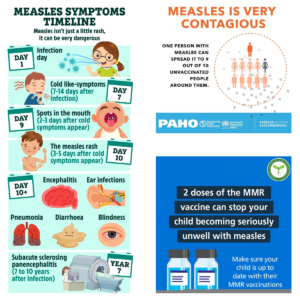
Any further suspected cases will be tested with samples being shipped to the regional reference laboratory at the Caribbean Public Health Agency (CARPHA). Any new cases will be reported to the general public.
Activities are being undertaken to mitigate against further cases of measles including public education through various forms of media, including PSAs, dissemination of information to health care providers, collaboration with regional and international partners, including the UK Health Security Agency (UKHSA), Pan American Health Organisation (PAHO) and CARPHA, as well as other stakeholders.
As part of the response, the Ministry of Health, through the Primary Health Care Department, is conducting a mop-up exercise to identify vulnerable persons, particularly children, who are unvaccinated with the MMR vaccine or who are unsure of their immunisation status.
Measles is a highly infectious disease caused by a virus that spreads easily between people. Symptoms typically start between 10 and 12 days after catching the infection. The signs and symptoms of measles are:
- A high fever
- Runny or blocked nose
- Cough
- Red, sore, watery eyes
Small greyish-white spots with a bluish-white center inside the mouth, cheek, and throat may appear a few days later. A rash usually appears 2-4 days after the cold-like symptoms start. The rash starts on the face and behind the ears before spreading to the rest of the body.
Measles is spread through close contact with someone with measles. This could be through droplets in the air which are generated by the coughs and sneezes of infected persons or by touching things that someone with measles has coughed or sneezed on.
Measles spreads easily within households and in other places where people mix closely together. Measles is so contagious that if one person has it, up to 90% of the people close to that person who are not immune will also become infected. The period when a person is infectious and can spread the virus is within 7 to 10 days of exposure but can be up to 14 days.
Most measles-related deaths are caused by complications associated with the disease and serious complications are more common in children under the age of 5, or adults over the age of 30 and individuals whose immune systems have been weakened. The most serious complications include blindness, encephalitis (an infection that causes brain swelling), severe diarrhoea and related dehydration, ear infections, or severe respiratory infections such as pneumonia. Women infected while pregnant are also at risk of severe complications, and the pregnancy may end in miscarriage or preterm delivery. People who recover from measles are immune for the rest of their lives.
Any non-immune person (who has not been vaccinated or was vaccinated but did not develop immunity) can become infected.
No specific antiviral treatment exists for measles virus.
Severe complications from measles can be avoided through supportive care that ensures good nutrition, adequate fluid intake and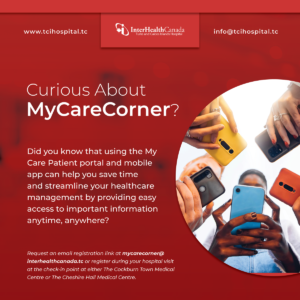 treatment of dehydration with WHO-recommended oral rehydration solution. This solution replaces fluids and other essential elements that are lost through diarrhoea or vomiting. Antibiotics should be prescribed to treat eye and ear infections, and pneumonia.
treatment of dehydration with WHO-recommended oral rehydration solution. This solution replaces fluids and other essential elements that are lost through diarrhoea or vomiting. Antibiotics should be prescribed to treat eye and ear infections, and pneumonia.
A number of measles outbreaks have been detected in a number of countries. While the TCI has high vaccination coverage in the measles, mumps and rubella vaccine (MMR) (>95%), unvaccinated persons can still acquire measles through contact with an infectious person.
Having the MMR vaccine is the best way to prevent measles. The MMR vaccine is safe and effective in providing long term protection against measles, mumps and rubella. Vaccines are offered free of cost to all children at government-operated primary care facilities across the TCI.
The Ministry of Health and Human Services encourages parents to ensure that theirchildren’s vaccines are up to date. If you are unsure if you or your child has had 2 doses of the MMR vaccine, please visit your health care provider. If you have missed a dose, you can still be vaccinated at any age.
The public is being advised to remain vigilant and report any fever with rash or fever followed by rash to their doctor/health care provider as soon as possible.
For additional information please call 649-348-5472 or 649-242-4963 outside of working hours or visit the Ministry of Health and Human Services Facebook page at https://www.facebook.com/tciministryofhealth/.

 Caribbean News1 week ago
Caribbean News1 week ago
 Health1 week ago
Health1 week ago
 Caribbean News1 week ago
Caribbean News1 week ago
 Caribbean News1 week ago
Caribbean News1 week ago
 News1 week ago
News1 week ago
 Caribbean News1 week ago
Caribbean News1 week ago
 Bahamas News1 week ago
Bahamas News1 week ago
 Bahamas News1 week ago
Bahamas News1 week ago
